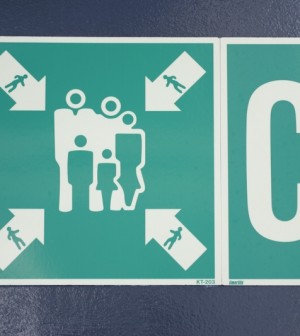- Stigma, Shame Hit Many Gay Men Affected by Mpox Outbreak
- Calories, Not Meal Timing, Key to Weight Loss: Study
- Dietary Changes May Beat Meds in Treating IBS
- Screen Pregnant Women for Syphilis, Ob-Gyn Group Advises
- Even With Weight Gain, Quitting Smoking in Pregnancy Still Best for Health
- A-Fib Is Strong Precursor to Heart Failure
- One Neurological Factor Keeps Black, Hispanic Patients From Alzheimer’s Clinical Trials
- Managing Blood Sugar After Stroke Could Be Key to Outcomes
- Dozens of COVID Virus Mutations Arose in Man With Longest Known Case
- Blood Test Might Someday Diagnose Early MS
Child Abuse Cases in Army Families May Be Under-Reported

Child abuse within U.S. Army families may be significantly under-reported, a new study suggests.
Researchers found that only one-fifth of diagnosed child abuse and neglect cases among U.S. Army-dependent children from 2004 to 2007 had a substantiated report with the Army’s Family Advocacy Program (FAP). The program is responsible for investigating and treating child abuse.
That’s less than half the rate (44 percent) of child abuse cases substantiated by civilian Child Protective Services, according to the study. The investigation was conducted by researchers at Children’s Hospital of Philadelphia and the U.S. Army FAP.
The implication is that “some children are falling through the cracks of a broken system,” said study senior author Dr. Dave Rubin, a pediatrician at Children’s Hospital of Philadelphia.
“For many years, the U.S. Army has reported rates of child abuse well below that of the civilian population. This study calls those reports into question,” Rubin said in a hospital news release.
“Yet, the U.S. Army can only report cases they know about, and our findings suggest that they may not be aware of the majority of their cases,” he added.
The study also found that the number of diagnosed abuse cases with corresponding substantiated Army advocacy-program reports was lowest for children cared for at civilian treatment facilities (9 percent), but was still low for children receiving care from military health care providers (24 percent).
The findings suggest under-reporting of Army child abuse cases by medical providers and/or poor communication between civilian child-protection services and military services, the researchers said.
“Military children move across states more frequently, making it particularly important that FAP know about any maltreatment since they can monitor at-risk military children wherever they are,” Rubin said.
The rate of substantiated abuse cases was higher from military treatment facilities, where health care providers are required to report abuse to the Family Advocacy Program. But still only one in four diagnoses was linked to a substantiated report, Rubin noted.
“Among civilian health care providers, the problems are even more complicated. Since they are located off-base, these providers may not be aware of the need to report to FAP and there is no mechanism to mandate they do so,” he said.
“They may well be reporting cases to civilian agencies — that are then assisting children in need — but for the most part, those cases are not communicated back to FAP, which is best positioned to intervene with military families,” Rubin explained.
The findings point to a need for better tracking of child abuse in military families, he concluded.
The results were published Dec. 12 in the journal Child Abuse & Neglect.
More information
The U.S. Children’s Bureau has more on child abuse and neglect.
Source: HealthDay
Copyright © 2024 HealthDay. All rights reserved.










